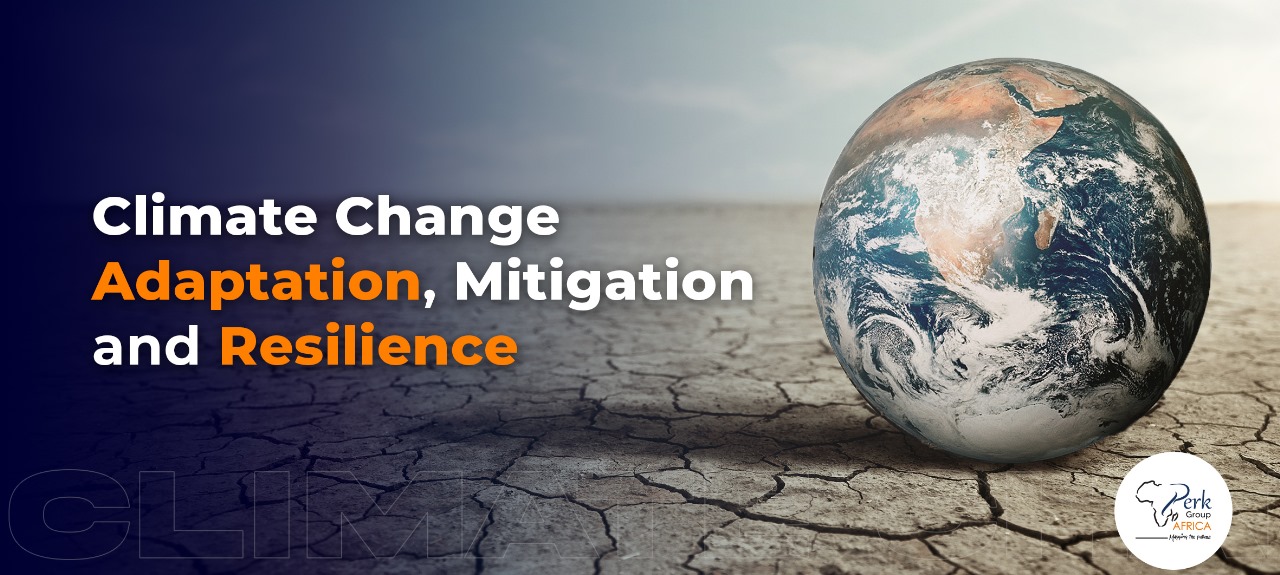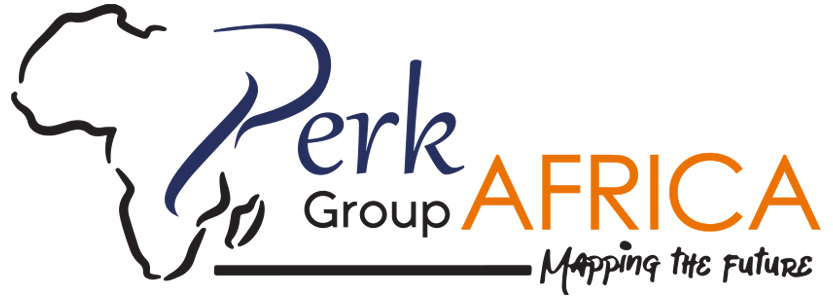
Training Course on Climate Change Adaptation Mitigation and Resilience
Course Overview
Our climate is changing rapidly and communities all over the world are feeling the impact. Climate change impacts affect social and ecological systems in complex and broad-ranging across regions, groups and sectors. Many of these impacts have cascading negative effects on social, economic and health outcomes of communities especially in food and livelihood security. In order to respond to climate change, more vigorous actions are required to mitigate emissions of greenhouse gases (GHGs) and to adapt to unavoidable consequences that are increasing vulnerability around the world. While Africa has contributed the least to climate change, it’s the hardest hit by its effects. Communities in Africa consequently need to learn to cope with the effects of climate change including warmer temperatures, drier soils, floods, droughts and other changes in weather extremes. At different governance levels and scales, appropriate responses are needed to mitigate and build adaptive community capacity and therefore resilience against effects of climate change. This training places local sustainability, its development challenges and local vulnerabilities in the context of climate changes at regional and global levels in order to understand their linkages. And develop local strategies that support poverty reduction, build community resiliency while supporting and preserving biodiversity
Course objectives:
The overarching objective of the course is to provide the participants with knowledge on how climate change can be integrated into natural resources management policy, programmes, projects and other community-based climate change response actions in which the participants are or will be involved in.
Upon completing the course, participants will be able to:
- Enhance participant’s knowledge on the fundamentals of climate change science
- Equip course participants with knowledge and skills in climate change adaptation and mitigation
- Train participants on approaches to build community resilience against climate change
- Equip participants with a better understanding of climate change and its impacts on food security
- Enhance participant’s awareness on the challenges and opportunities in climate change governance.
- Equip participants with skills to be able to conduct stakeholder, vulnerability & resilience assessments to support decision making processes.
- Strengthen participant’s skills for stakeholder engagement, policy influencing, advocacy and negotiation to help for establishment of more effective governance structures
- Enable participants to explore institutional arrangements needed for addressing food security and climate change linkages
- Strengthen the participant’s capacity of planning processes to deliver climate change action
- Enhance participants understanding of the international climate change legal and policy framework and appreciate the key issues under negotiation
Target group
The course targets policy and decision makers and civil servants in national ministries and local authorities, civil society organizations, non-governmental organizations, private sectors working in agriculture, environment and natural resources management; Researchers and students. Participants need to have relevant education background.
Course Duration
5 days
Course Outline
Module 1: Introduction to Climate Change and its Impacts
- Understanding human contributions to climate change.
- Observed and projected climate trends and their impacts.
- Science-based evidence on climate change at global and regional levels.
- Case studies on climate impacts across various sectors (agriculture, health, water).
Module 2: International Legal and Policy Framework for Climate Change
- International legal and policy frameworks:
- UNFCCC, Kyoto Protocol, Paris Agreement.
- Nationally Determined Contributions (NDCs) and national climate policies.
- Ensuring regulatory compliance in climate-related projects.
Module 3: Climate Change Mitigation Strategies
- Overview of mitigation strategies.
- Sectoral mitigation strategies:
- Energy (renewables, energy efficiency).
- Transportation (low-emission technologies).
- Agriculture (sustainable practices and reforestation).
- Tools for integrating mitigation into economic and development planning.
Module 4: Developing Climate Change Adaptation Strategies
- Adaptation Concepts and Principles
- Vulnerability and Risk Assessment in various sectors
- Tools and methodologies for climate adaptation planning.
- Global adaptation initiatives and community-based programs.
Module 5: Building Resilience to Climate Change
- Concept of climate resilience and its importance.
- Enhancing community, infrastructure, and ecosystem resilience.
- Strategies for Enhancing Resilience
- Nature-Based Solutions
- Infrastructure Resilience
- Early Warning Systems
- Case Studies on Resilience
Module 6: Climate Change Finance
- Understanding international climate finance streams:
- Green Climate Fund (GCF).
- Adaptation Fund.
- Carbon markets and emissions trading mechanisms.
- Accessing and managing climate finance for community projects.
Module 7: Action Planning and Monitoring
- Developing Climate Action Plans
- Stakeholder Engagement and Participation
- Integrating Adaptation, Mitigation, and Resilience
- Monitoring and Evaluation (M&E)
- Tools for Tracking Progress
- Indicators of Success
- Tools for climate action planning and monitoring.
Note: This outline provides a general structure for the training. The specific content, activities, and duration of each session may be adjusted based on the target audience, learning objectives, and available time.
Classroom Training Schedule
| Start Date | End Date | Location | Cost | Apply |
|---|---|---|---|---|
| Feb 09, 2026 | Feb 13, 2026 | Nairobi | $ 1200 | Register |
| Mar 16, 2026 | Mar 20, 2026 | Nairobi | $ 1200 | Register |
| Apr 20, 2026 | Apr 24, 2026 | Nairobi | $ 1200 | Register |
| May 25, 2026 | May 29, 2026 | Nairobi | $ 1200 | Register |
| Jun 29, 2026 | Jul 03, 2026 | Nairobi | $ 1200 | Register |
| Aug 03, 2026 | Aug 07, 2026 | Nairobi | $ 1200 | Register |
| Sep 07, 2026 | Sep 11, 2026 | Nairobi | $ 1200 | Register |
| Oct 12, 2026 | Oct 16, 2026 | Nairobi | $ 1200 | Register |
| Nov 16, 2026 | Nov 20, 2026 | Nairobi | $ 1200 | Register |
Virtual Training Schedule
| Start Date | End Date | Location | Cost | Apply | |||
|---|---|---|---|---|---|---|---|
| Jan 26, 2026 | Jan 30, 2026 | Online | $ 600 | Register | |||
| Mar 02, 2026 | Mar 06, 2026 | Online | $ 600 | Register | |||
| Apr 06, 2026 | Apr 10, 2026 | Online | $ 600 | Register | |||
| May 11, 2026 | May 15, 2026 | Online | $ 600 | Register | |||
| Jun 15, 2026 | Jun 19, 2026 | Online | $ 600 | Register | |||
| Jul 20, 2026 | Jul 24, 2026 | Online | $ 600 | Register | |||
| Aug 24, 2026 | Aug 28, 2026 | Online | $ 600 | Register | |||
| Sep 28, 2026 | Oct 02, 2026 | Online | $ 600 | Register | |||
| Nov 02, 2026 | Nov 06, 2026 | Online | $ 600 | Register | |||
| Nov 30, 2026 | Dec 04, 2026 | Online | $ 600 | Register |
Course Language
This Training course is offered in ENGLISH . Please indicate the language of choice during registration.
Course Delivery
Presentations are well guided, practical exercise, a plenary presentation, and group work. Participants are encouraged to bring any data relevant to their job responsibilities. This is hands-on, product-oriented training and will mostly involve practical exercises. Each participant MUST bring along their own working laptop and android phone.
Certification
Upon completion of training, the participant will be issued with a certificate of Completion.
Tailor-Made Course
3 months post-training support, consultation, and coaching is a guarantee from us and will be available after the course.We can also do this as a tailor-made course to meet organization-wide needs. Contact us to find out more: training@perk-gafrica.com.
